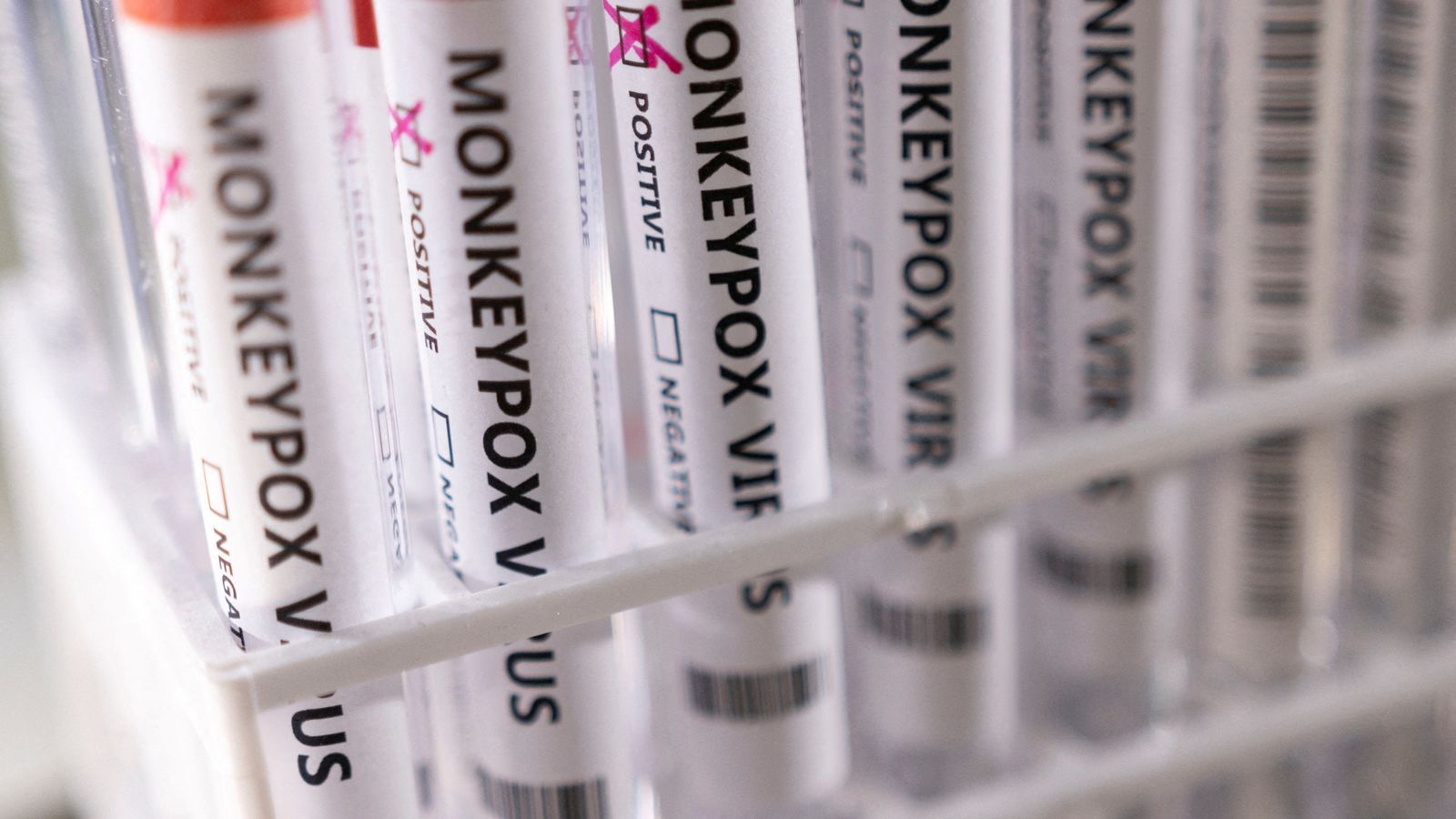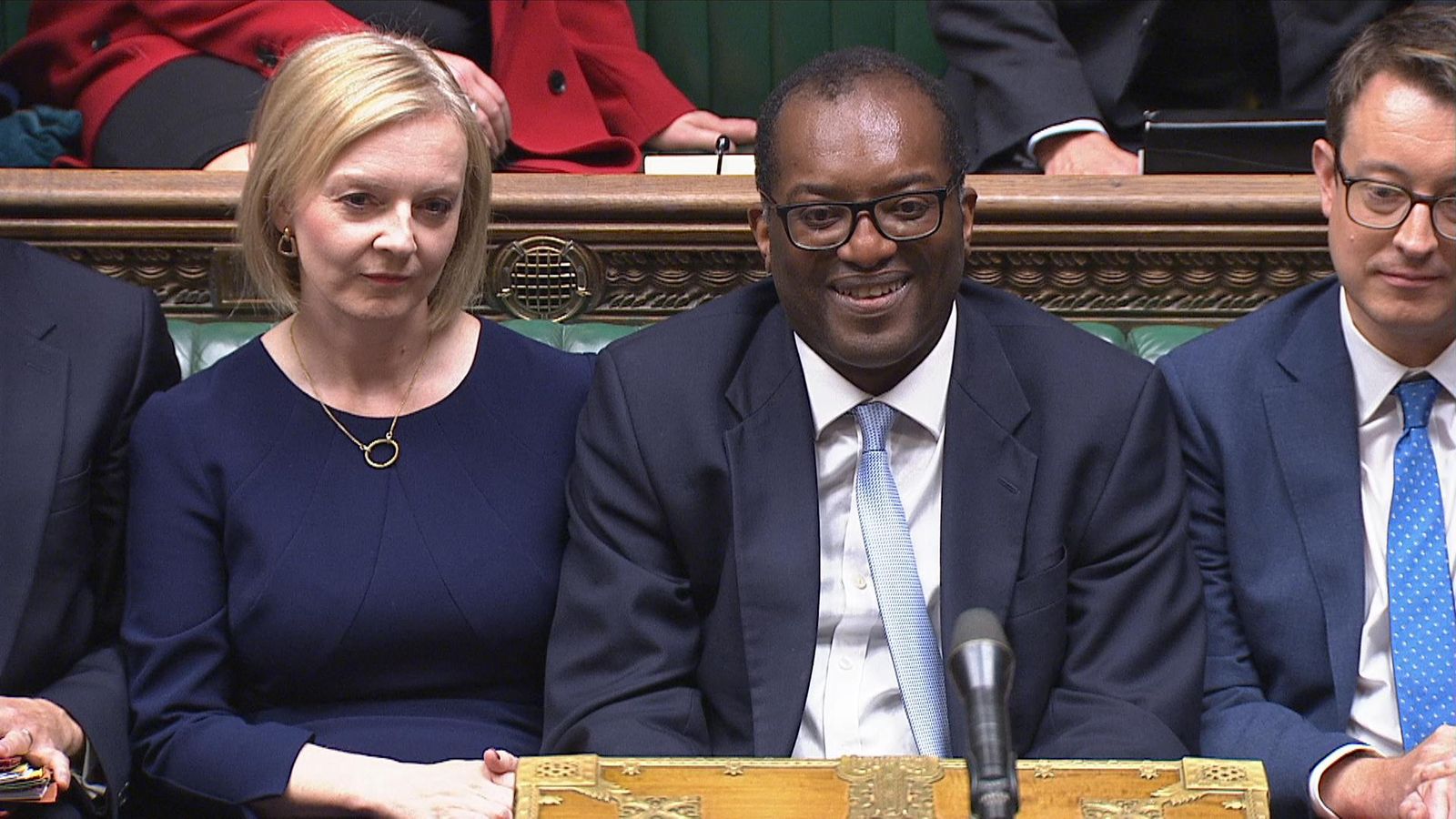The UK looks to be winning the battle against monkeypox with a leading infectious disease expert describing the situation as “very positive” as cases continue to fall.
Professor Neil Ferguson said vaccination and changes in behaviour were likely responsible for the drop in infections.
But he also warned against complacency and highlighted the risk of a resurgence.
The UK monkeypox outbreak was detected in early May when the first cases were reported of the disease usually confined to parts of Africa.
At its peak in mid-July, there were 60 cases a day, but by early September this had fallen on average to fewer than 15.
At the end of last month, there were 3,485 confirmed and 150 highly probable cases of monkeypox in the UK.
Referring to the reduction in cases, Prof Ferguson told the BBC: “We’re not completely sure of exactly why.
Monkeypox: Different strain detected in the UK after patient travelled to West Africa
Man tests positive for monkeypox, COVID and HIV after holiday to Spain
Smaller doses of monkeypox vaccine to be offered to stretch supplies
“Vaccination started to be rolled out so that probably had some effect – but it doesn’t explain it all.
“The most likely hypothesis is that there was quite a big change in behaviour in the most affected community, namely men who have sex with men.”
The Imperial College London academic, whose data was key to the UK going into the first COVID-19 lockdown in March 2020, also told the broadcaster the situation was now “very positive”.
But Prof Ferguson, a member of the government’s SAGE scientific advisory panel, added: “We have to be alert to the possibility that once case numbers are much lower and maybe people are less vigilant, then we could start to see a resurgence.”
Those most at risk from monkeypox will be offered second doses of the vaccine, the UK Health Security Agency (UKHSA) said recently.
Sexual health clinics will continue to prioritise offering first doses to those at highest risk.
Previously published modelling suggested vaccinating 25% of the groups most at risk could significantly reduce the risk of transmission.
There are no current plans to widen the offer of vaccination beyond the existing priority groups, but the decision is being kept under review.
As of 20 September, more than 45,000 people have received a dose of the vaccine.











